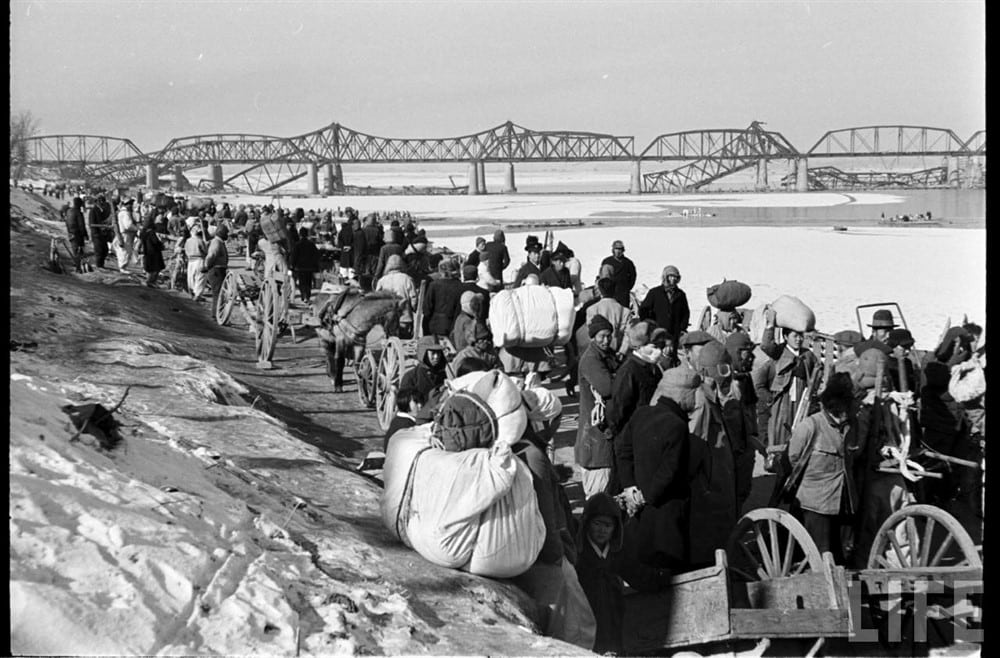It has been more than 70 years since the Korean War broke out on June 25, 1950. I remember waking up one morning in my home in Seoul to a very loud and unusual noise coming from the direction of Main Street. Hurriedly I ran out to the street to see a strange army marching through from Arirang Hill north of our town. Two lines on both sides of the street. I wondered who they were and where was our army?
It was June 28th, three days after the outbreak, and the Red Army equipped with heavy Soviet tanks had captured Seoul. And they kept marching. Today there are 27 bridges across the Han River that connect Seoul to the southern part of the country. In 1950 there was only one, and in a hurried retreat, the Korean army destroyed the only road bridge on the Han River to delay the Red Army’s advance. It deterred the event only several days with a great toll on the civilians trying to cross the bridge and escape the enemy. Most of Seoul’s people, including my family, could not cross the river until the river froze many months later.
Under the Communists’ control in Seoul, many under-privileged civilians turned into instant communists and started seeking and killing innocent neighbors of relatively affluent status. As a ten-year-old boy, I saw my good neighbors, especially men, caught and shot on the spot. Dead bodies were everywhere on the streets and sideways. The odor was ridiculous. With no time or resources to bury the dead, corpses were covered with leaves and tree branches.

Harry Truman, then President of the United States, took swift action. Without hesitation, he called the General Assembly of the United Nations. He knew that quick action with superior power was the most compelling way to have communists come to the negotiation table. The UN General Assembly approved the agenda to defend Korea. The next step was to pass the Security Council which also approved unanimously on June 27th with the fortuitous/miraculous absence of the Soviet delegate.
All these procedures happened only two days after the outbreak. A total of 22 countries contributed either combat forces or medical assistance to support South Korea. The United States was the clear leader among free nations and the allied forces restored Seoul after severe battles that lasted three months.
The average annual income in Korea during the war was less than $100. My family had escaped to the southern city of Busan and I was a student in the fourth grade. One day two big army trucks came to our makeshift school and American soldiers started unloading packages from a truck. We just stood wondering what they were doing. Then they had us line up into groups of 10. A soldier started to distribute, giving one toy and one chocolate to each child.
At my turn, he smiled broadly and gave me a chocolate and a palm-sized toy car. My first experience of getting a brand new American-made toy. I don’t remember if I had tasted chocolate before that time. This was a small bright day in the darkness of war. Since then I dreamed of the USA as a nation of chocolate and toys.
The war lasted three years. The Communists ignored a cease-fire negotiation when the battle was on their side. Finally, North Koreans begged for a meeting when the communists were pushed back to the North by the UN army.
70 years have passed. Seeing again the Soviet tanks invade Ukraine, I noticed one thing unchanged, and one thing changed.
- Unchanged : Communist aggression and brutality. They never yield when they are stronger. Collectively, Communist governments have killed as many as 100 million people. (U.S.S.R.: 20 million deaths; China: 65 million deaths; Vietnam: 1 million deaths; North Korea: 2 million deaths; Cambodia: 2 million deaths: Eastern Europe: 1 million deaths; Latin America: 150,000 deaths; Africa: 1.7 million deaths; Afghanistan: 1.5 million deaths.)*
- Changed : American leadership is faltering and the allied forces have no stomach for losing their own troops. The tough talk is there. And the Western world stands united in helping Ukraine with economic sanctions and both weapons and refugee assistance. But with boots on the ground? Not this time.
Seventy years ago the USA and all Democratic nations united tightly under one principle: Keep Communism from expanding. As many as 38,000 foreign soldiers died on Korean soil. No free nation regretted sending their army. They swallowed this sacrifice for freedom whether national or international. Will the current united Democratic opposition, in this modified form, be enough? Will Ukraine’s story be an encore of Democracy’s South Korean victory? Only time will tell.
Let’s help Ukraine
The following charities gave much needed assistance during the Korean War and are currently proving humanitarian aid to the people of Ukraine:
Unicef: Children are the least responsible for war in Ukraine, but they suffer most from its consequences. Your 100% tax-deductible donation will help UNICEF ensure that Ukraine’s children have access to safe water, nutrition, health care, education and protection.
International Committee of the Red Cross (ICRC): Established in 1863 and operating worldwide, the ICRC remains active in Ukraine, saving and protecting the lives of victims of armed conflict and violence. ICRC water engineers and doctors aim to help more than 3 million people access clean water and improve the living conditions of more than 66,000 whose homes have been damaged by heavy fighting.
*”The Black Book of Communism: Crimes, Terror, Repression” by Stephane Courtois, Nicolas Werth, Jean-Louise Panne, Adrzej Paczkowski, Karel Bartooek, and Jean-Louis Margolin. (Harvard University Press 2020).





